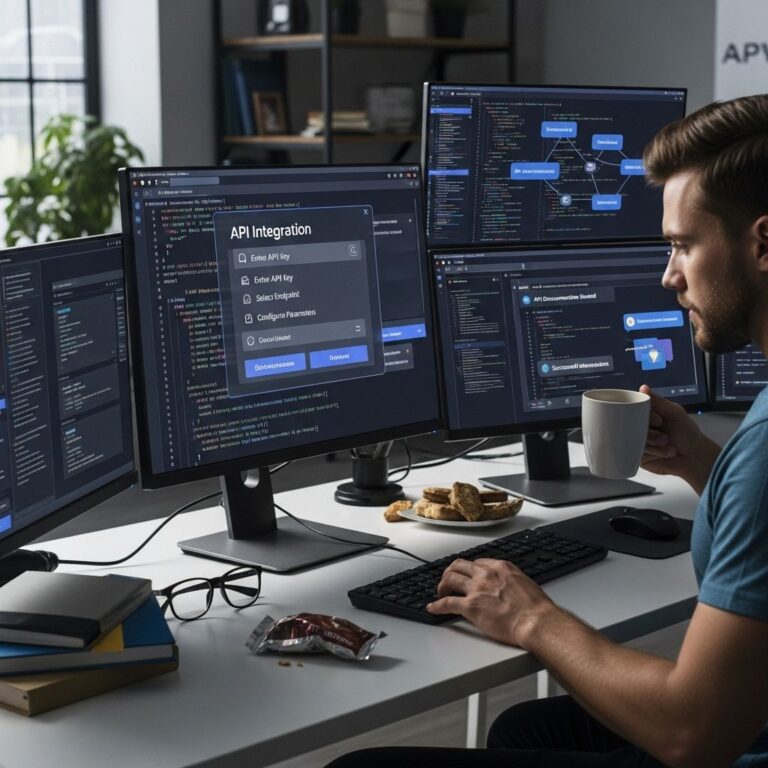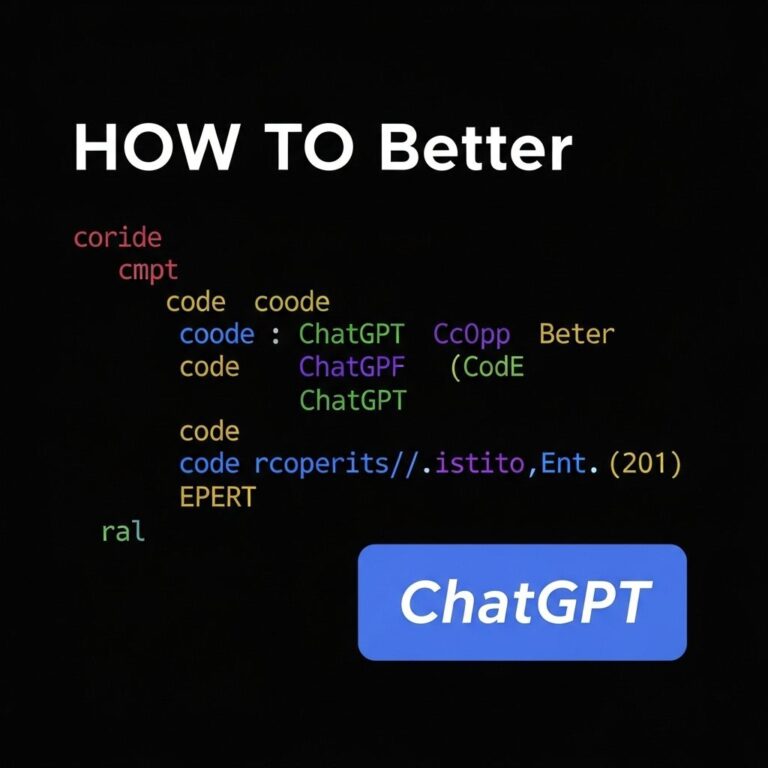In the ever-evolving landscape of software development, coding bugs can be a significant source of frustration for developers. Bugs not only hinder progress but can also lead to increased costs and delays in project timelines. As technology advances, so does the incorporation of artificial intelligence (AI) tools to assist developers in debugging their code efficiently. This article explores how AI prompts can enhance the debugging process, providing developers with an arsenal of strategies and tools to fix coding bugs faster than ever.
Table of Contents
Understanding the Role of AI in Debugging
AI has revolutionized various sectors, and software development is no exception. Debugging, traditionally a manual and time-consuming task, can now benefit from the intelligence of AI. The integration of AI in coding allows for:
- Automated Code Review: AI tools can analyze codebases and identify potential bugs based on patterns learned from vast databases of coding practices.
- Predictive Analysis: By utilizing machine learning algorithms, AI can predict where bugs are likely to occur based on historical data.
- Enhanced Code Suggestions: AI prompts can provide real-time suggestions for code fixes, often improving code efficiency and reducing the likelihood of future bugs.
How AI Prompts Work
AI prompts leverage natural language processing (NLP) and machine learning (ML) to understand and generate code snippets. Here’s a basic outline of how they function:
- Input Parsing: The AI parses the input code to identify syntax errors or logical flaws.
- Error Identification: The tool uses its database to match the identified issues with known bugs and their solutions.
- Generation of Suggestions: Based on the recognized patterns, the AI generates prompts that suggest code modifications or strategies to rectify the bugs.
Popular AI Debugging Tools
Several tools on the market utilize AI to streamline the debugging process. Here are some of the most effective options for developers:
| Tool | Key Features | Best For |
|---|---|---|
| GitHub Copilot | Contextual code suggestions, autocompletion | Pair programming, IDE integration |
| Tabnine | Code completion, learning from your coding style | Custom codebases, team collaboration |
| DeepCode | Static analysis, vulnerability detection | Security-focused development |
| Sourcery | Code refactoring, performance optimization | Improving code quality |
Choosing the Right Tool
When selecting an AI debugging tool, consider the following factors:
- Integration: Ensure the tool fits seamlessly into your existing development environment.
- Team Needs: Evaluate whether the tool caters to the specific needs of your team or project.
- Learning Curve: Some tools may require time to learn, which can impact productivity initially.
Best Practices for Using AI in Debugging
While AI prompts can significantly enhance the debugging process, developers should follow best practices to maximize their effectiveness:
1. Validate AI Suggestions
Always verify the suggestions provided by AI tools before implementing them. AI is not infallible and can sometimes offer incorrect or suboptimal solutions.
2. Combine AI with Human Insight
AI tools are designed to assist, not replace human developers. Combining the insights from AI with experience and creativity enhances overall outcomes.
3. Continuously Train the AI
Many AI tools improve over time. Ensure your team provides feedback on suggestions so that the tool can learn and adapt to your specific workflow.
4. Share Knowledge within the Team
Encourage team members to share their experiences with AI tools. Collaborative knowledge sharing can uncover new methods to leverage AI for debugging.
Real-World Applications of AI in Debugging
Companies across various industries are integrating AI into their development and debugging processes. Here are a few standout examples:
Tech Giants
Companies like Google and Microsoft utilize AI-driven tools to manage their extensive codebases, significantly reducing the time required for bug detection and resolution.
Startups
Many startups leverage AI tools from the outset, allowing them to remain agile and responsive to bugs as they arise, which is essential for maintaining competitive advantages in fast-paced markets.
Open Source Communities
Open source projects utilize AI to help contributors quickly identify and resolve bugs, improving the overall quality and reliability of the software.
The Future of AI and Debugging
The future of debugging lies in the continuous improvement of AI technologies. As machine learning algorithms become more sophisticated, we can expect:
- Greater Accuracy: AI will improve in predicting and solving bugs with minimal human intervention.
- Increased Collaboration: Tools will become more adept at facilitating teamwork among developers, allowing for seamless integration of different coding styles and practices.
- Enhanced Security Measures: With the rise of cyber threats, AI will play a crucial role in identifying vulnerabilities before they can be exploited.
Conclusion
Incorporating AI prompts into the debugging process presents a compelling opportunity for developers to enhance their productivity, reduce frustration, and improve code quality. By understanding how to leverage these advanced tools effectively, developers can position themselves at the forefront of the software development industry. As AI technology continues to evolve, its role in debugging will only grow in importance, paving the way for more innovative and efficient development practices.
FAQ
How can AI prompts help in fixing coding bugs?
AI prompts can analyze code snippets, identify potential bugs, and suggest fixes quickly, reducing debugging time significantly.
What types of coding bugs can AI prompts help with?
AI prompts can assist with syntax errors, logical errors, runtime exceptions, and performance issues by providing targeted suggestions and solutions.
Are AI prompts suitable for all programming languages?
Yes, many AI prompt tools support a wide range of programming languages, allowing developers to find solutions regardless of the language they are working with.
Can AI prompts improve my coding skills?
Absolutely! By using AI prompts, you can learn best practices, understand error messages better, and gain insights into efficient coding techniques.
Do I need advanced technical knowledge to use AI prompts for debugging?
No, AI prompts are designed to be user-friendly, making them accessible for both novice and experienced programmers to troubleshoot and fix bugs.
Is there a cost associated with using AI prompts for coding?
While some AI prompt tools are free, others may offer premium features for a fee. It’s best to explore various options to find a tool that fits your budget.









